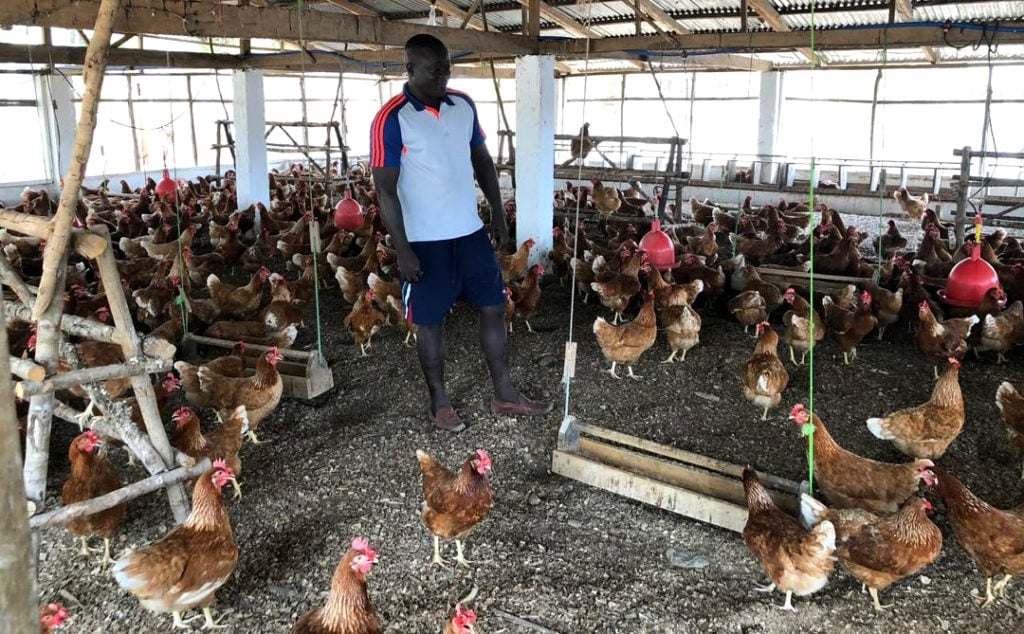Egg consumption in Sierra Leone is estimated at 200 million eggs annually. However, local production is still small, covering only 20% of the demand. The rest is covered by imports. Cordaid Investments believes in the potential of the poultry sector and has financed local poultry farmers to increase their share of the market. One of these companies is Leecon Poultry Enterprise.

Sixteen years ago, Bai Bureh Conteh, founder of Leecon, started activities in the poultry sector using all his savings. He started with a small scale farm, with only 700 birds. Despite the series of challenges that Leecon faced, the business has grown gradually with consistent re-investment of profits to the business.
Before the investment from Cordaid, they had 15,000 layers. This has increased to 30,000 after the investment. Bai Bureh Conteh highlights the challenges in the sector: “Feed is a huge challenge because almost every poultry input is imported. It is quite challenging and expensive to import from overseas especially for small farmers.”
“Cordaid Investments’ loan has helped grow my business and to improve production efficiency in my farm.”
Depreciation of the local currency is also a major challenge. “Businesses that depend on imported inputs struggle to be profitable. If you are trading in Leones a devaluation of the Leones against hard currencies negatively impacts cost of production. And the need for working capital increases”, he continues.
Loan in local currency mitigates risks
Saio Kuyateh, Cordaid Investment Manager in Sierra Leone, has significant experience in poultry sector development projects. “The poultry industry is dominated by small farmers who lack the finance to import high quality feed ingredients”, he explains.
“Instead they go for local substitutes that lack the nutrition content necessary to attain a high production efficiency. Like most agriculture businesses, Sierra Leone’s poultry sector struggles to access finance to grow and develop.”
Cordaid Investments supported Leecon with a loan in local currency to grow the business. “My loan contract with Cordaid is in local currency”, says Bai Bureh Conteh. “But I received the funds in foreign currency equivalence so I can pay my foreign suppliers directly. This helped to mitigate foreign currency risks I was exposed to when sourcing inputs.”
Making businesses sustainable
Saio Kuyateh regularly contacts and visits Bai Bureh Conteh and his company. They discuss financial and non-financial aspects of the business. In one of his recent visits to the site, Saio learned that the feed business has started and that Leecon is currently supplying to six small poultry farmers.
“Our investment has helped Leecon tackle their challenge of accessing long term growth capital and has also positioned them to provide quality feeds to small farmers who cannot afford to import large quantities of inputs at affordable prices. This will not only improve profit margins for farmers. It will also help them offer competitive prices for their products. And it makes their businesses sustainable”, underlines Saio Kuyateh.
Creating employment opportunities
Cordaid Investments’ loan will also help to create employment opportunities. Leecon currently employs 25 people (80% youth). With this project they plan to create 9 more direct jobs. Bai Bureh Conteh: “Cordaid Investments’ loan has been really helpful, it has helped grow my business. I have employed more people as a result of the funds. It has also helped to improve production efficiency in my farm.”
Read more
Go to the Cordaid Investment Management website.